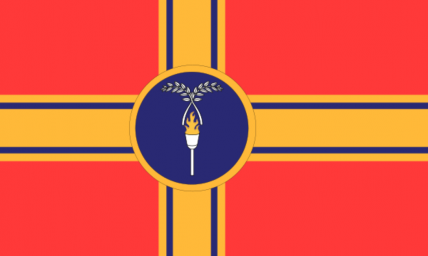I got this idea from the "History Of LGBTQ+ Rights In Your Nation" thread by Rhodevus so thanks for that! I'll start off with my nation's, I'm actually not new to roleplaying on NationStates (been doing it for quite a bit), but it does mean that the history of my nation varies, I will try my best to be as descriptive and creative as possible however, keep in mind that I'm just making some of this up haha.
The Empire Of Makko Oko starts off its labor rights journey as the Republic Of Makko Oko, with the official Constitution Of Makko Oko stating that "Everybody shall enjoy the right to be free from discrimination or harassment for their sex, disability, religion or education" which fell to everything, including companies and government offices. Not much expansion of labor rights happened after the Constitution was drafted and enacted in 1990, but the presidency of Kenneth Dirksen in 2000, which was the very first election of the President as defined under the Constitution, caused major changes to labor rights.
The first of many changes was the convincing of the House Of Order (the Parliament) to enact a law officially recognizing and legalizing the right to unionize, which caused widespread unionization at government offices across the nation due to low pay, and the lack of guaranteed wages. Due to the poor state of the economy, a guaranteed minimum wage wouldn't come until 2007, when Harold Zenonis first became President, and he was the first President to push for and enact, a revision to the Constitution, which guaranteed the right to a minimum wage and to basic income and welfare services.
After 2007, not many additional changes were made in terms of labor rights, and by the time labor rights were due for a mass expansion, which included guaranteed paid time off for certain types of leave, the Civil Transition War had started, and the law was put on pause until further notice, never becoming enacted law. The Empire Of Makko Oko didn't start the official establishment of labor rights until 2022, with the enactment of the Conall Labor Act and the most recent passing of the Wages Guidance Act which established an official minimum wage.
In addition to all of this, slavery was not officially illegalized in the Republic Of Makko Oko, and in the Empire Of Makko Oko, slavery was officially legalized under the law.
As of present, some believe that both Presidents of the republic were pro-corporate and only passed the labor rights reforms due to pushes from international human rights organizations and threats of development funds being cut off or put elsewhere. The Wages Guidance Act is also currently in legal trouble in Erma Barrows V. Makko Oko, which threatens to not only nullify that law, but multiple others as well.






